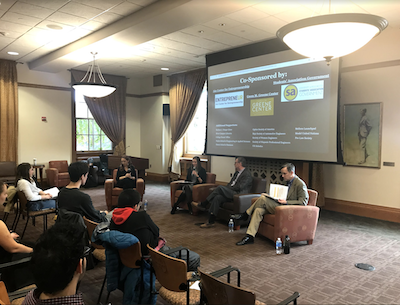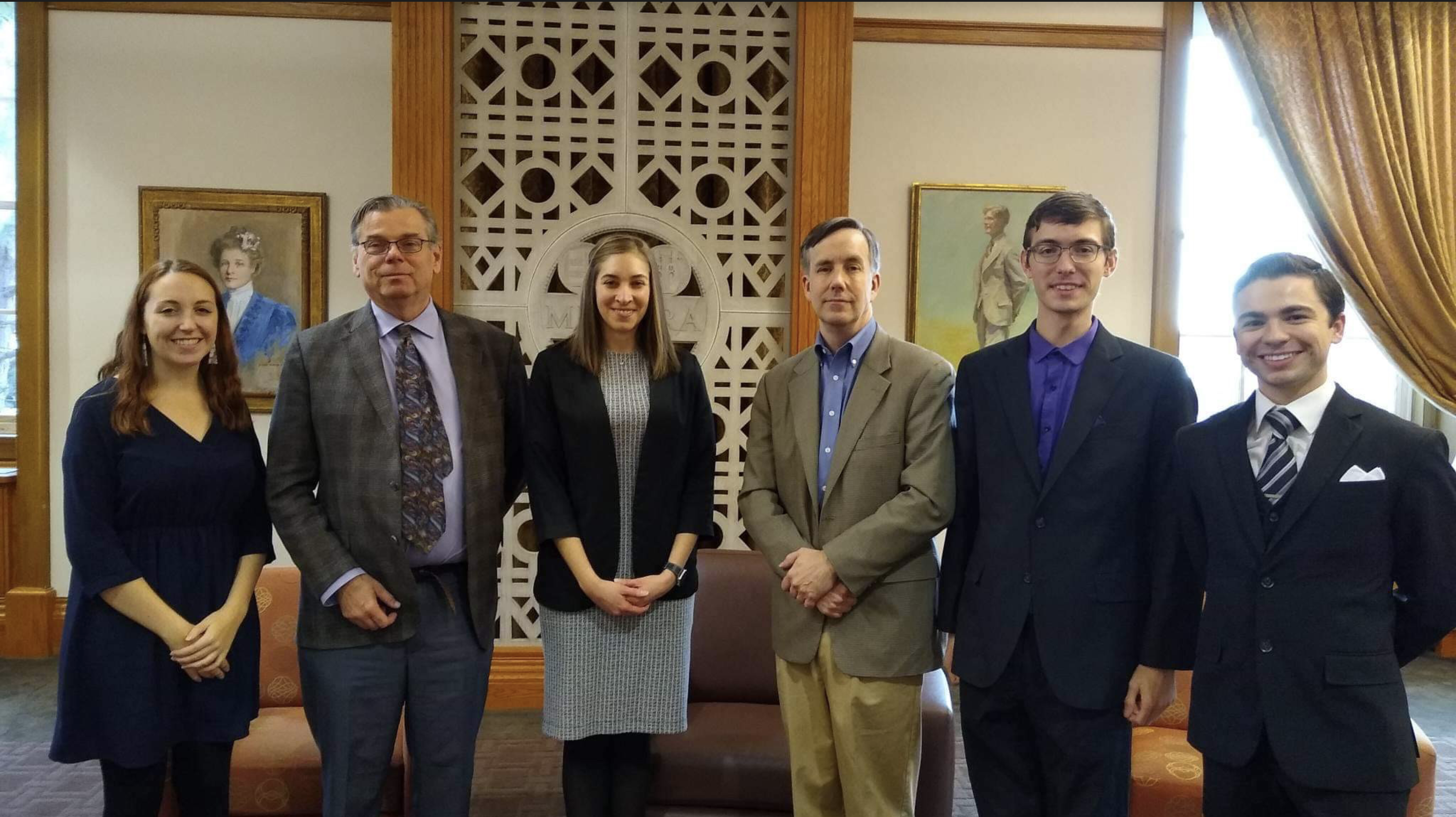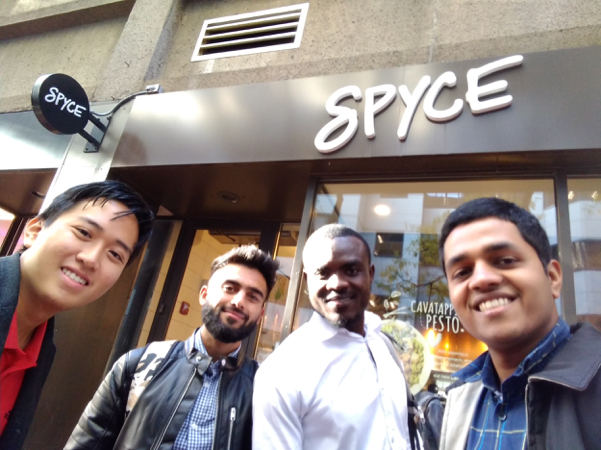Wakanda Meets Silicon Valley: A Journey to AfroTech
By Juana Johnson
For the last four years, something very special has been happening in the San Francisco Bay area in early November. Around this time, upwards of 10,000+ brown and black folks descend on the area to discuss all things engineering, technology, venture capitalism, entrepreneurship and social reform. This gathering brings the best and brightest together with technology powerhouses like Google, Amazon, Facebook and Microsoft. All with the collective mission of addressing pressing issues and offering solutions for minorities in these industries. Some have compared this event to a family reunion, historically black college/university (HBCU) homecoming, and career conference all mixed up in one, but to the wider world it is known as AfroTech.
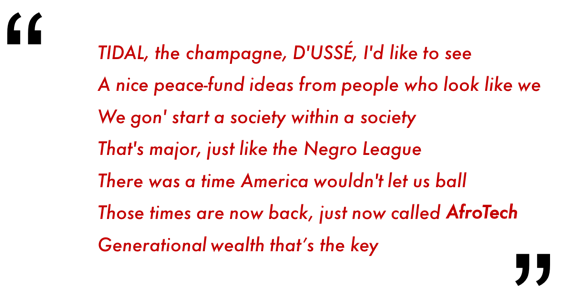
AfroTech was curated by Morgan DeBaun, Aaron Samuels, Jeff Nelson and Jonathan Jackson of the online platform Blavity. And now in its 4th year, the annual conference attracts founders and staffers of some of the fastest-growing tech startups who present the systems and strategies they use to grow their products and businesses.
This revolutionary experience for black techies fosters conversations ranging from how to raise venture funding to how to conduct user design workshops and growth hacking best practices. The conference also includes three full days of speakers and showcases of the latest technologies from the hottest startups in the country. Even more, top black early stage startups have the opportunity to pitch their ideas and compete for the highly coveted AfroTech Cup and win $10,000 in prize money.


When I arrived in Oakland on November 8th, I had a sense that I was about to bear witness to a one-of-a-kind experience and this conference did not disappoint. With well-known celebrities like media personality Charlamagne tha God, political strategist Angela Rye, and comedian and venture capitalist Hannibal Buress participating in fireside chats, I knew this wasn’t a run-of-the-mill career conference. For first time attendees like myself, the schedule of 60 breakout sessions and 100 corporate sponsor presentations could be overwhelming, but the conference offered three career tracks (leadership, entrepreneurship, and engineering/design) for attendees to focus their experience. During my time, I was able to attend breakout sessions ranging in topic focus from “Utilizing Technology to Protect Bodily Autonomy” hosted by Planned Parenthood to VC firm Precursor Ventures-led “From Seed to Series A.”

Breakout session hosted by Planned Parenthood
Mandela SH Dixon, CEO of Founder Gym, spoke extensively about the overarching topic of the conference: the issue of funding disparities for companies founded by people of color. In fact, the funding landscape for minority and women-owned startups continues to be a dismal one with just one percent of venture-backed founders being black and 1.8 percent being Latino. Women-founded startups receive only 9 percent of investments, while the largest portion of startup funding still goes to white (77.1%) and Asian founders (17.7%) regardless of gender. Dixon offered tips on how to secure the money needed to launch a business when personal finances are the main concern. She offered that “Success is in the follow through.” And that even in the face of racial and gender-specific barriers the most successful founders of color are those that have found a way to stand out.
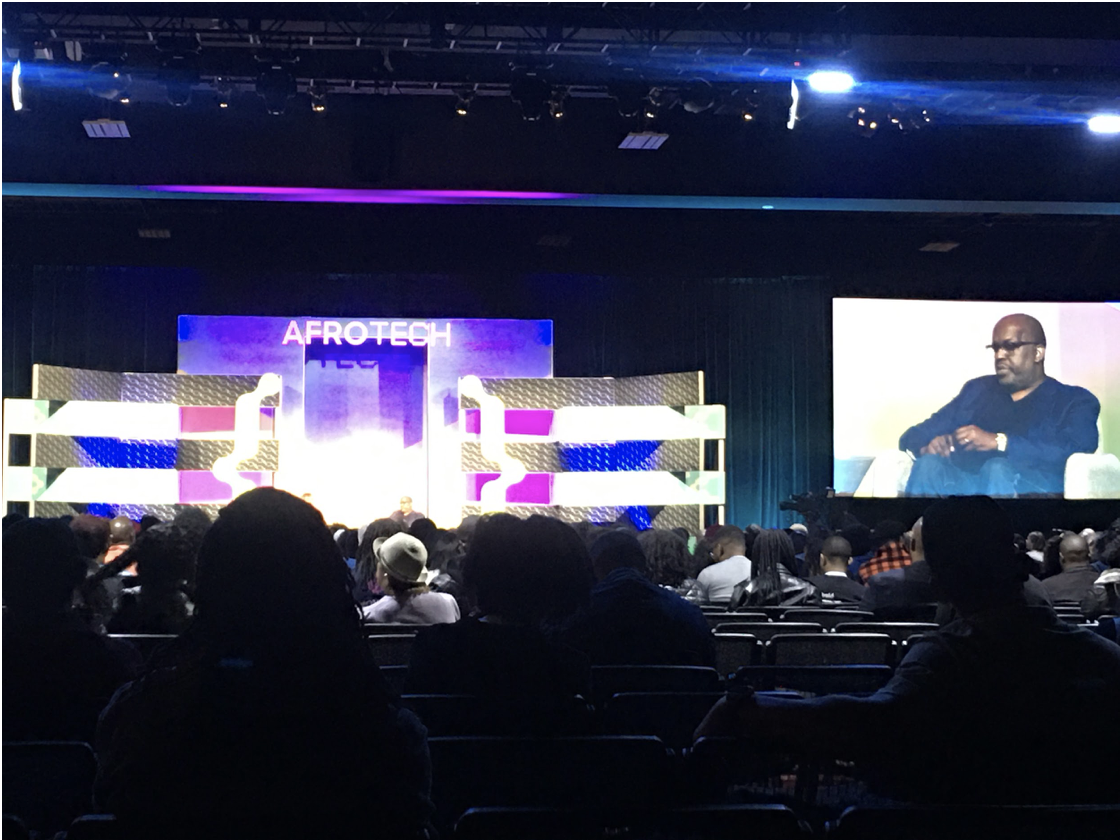
The late Bernard Tyson, CEO of Kaiser Permanente
The career expo floor was filled to capacity with recruiters, hiring managers and eager job seekers looking to change the composition of Silicon Valley. The most successful applicants secured on-the-spot interviews and job offers or invitations to company networking receptions held at night. But the networking didn’t stop there and continued on to marquee night events hosted by Apple, Twitter, Adobe and Kapor Capital.

AfroTech Career Expo
I left the conference with new professional connections, potential business collaborators and a renewed sense of purpose to do my part in changing the narrative for underrepresented minority groups in pursuit of futures in tech entrepreneurship. I know now that what happens at AfroTech is one of a kind and everyone that believes in supporting the collective power of entrepreneurs of the color should be in attendance. Support from the Ain Center has been instrumental and I hope to continue to share my AfroTech experience and lead a trip to next year’s conference for University of Rochester students will the same goals in mind.
If you’re interested in participating in the conference next year head over to AfroTech StartUp Database (https://experience.afrotech.com) to be considered for speaking engagements, pitch competitions and angel investments from the AfroTech network.
Juana Johnson ’21S (MBA) is a member of the Simon Business School Class of 2021. She is working toward a Masters in Business Administration degree with a concentration in Technology Consulting. At Simon, Juana is a Net Impact Board Member, Diversity and Inclusion Center of Excellence Council Member, Humans for Education project consultant, and P.I.E.C.E.S volunteer. Through her work with Humans for Education and P.I.E.C.E.S, Juana is working to develop the entrepreneurial and financial literacy skills of those from underserved communities.



